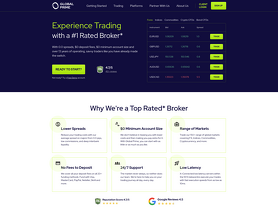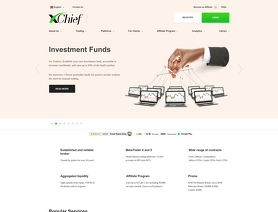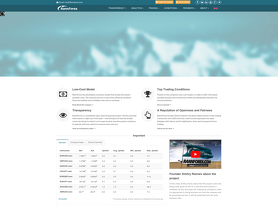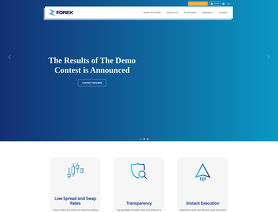Best Forex Brokers for Traders in Canada
No longer an immigrant country heavily shadowed by its dominant neighbor, Canada's economy is well developed and reach ninth place on the nominal global GDP ranking in 2020. Of course, the United States is Canada’s primary trading partner and shares both a similar business development culture as well as policies. This does mean that volatility in the US financial markets will frequently spill over to Canada.
The forex brokerage business is not as large in Canada as it is in the UK, EU, or Asia. Even though Canada's regulation is not as strict when compared to the US or UK, the coverage and regulatory framework do not help owners of forex brokers to choose Canada as their HQ. Quite a few of the Canadian regulated forex brokers were brought in via mergers or acquisitions. This practice is convenient for established brokers to enter new markets without facing large legal barriers. When compared with other major trading hubs in the world, Canada is still below the top 10, under 1.4% of forex turnover by country measured in 2019.
The Canadian Dollar (CAD) is a member of the major 8 currencies most traded on the forex market. CAD takes the same share of trading volume as the Swiss Franc with 5%. The USD remains the most traded currency taking 88% of global forex turnover. USD/CAD pair is still one of the most popular trading choices, especially during recent swings in Oil prices. CAD is regarded as positively correlated with Oil, unlike the USD.
Forex regulation in Canada is segmented into several local jurisdictions. The regulation and monitoring are not delegated to one entity. The Investment Industry Regulatory Organization of Canada (IIROC), the Canadian Securities Administrators (CSA) make the regulation and Financial Institutions Supervisory Committee (FISC) responsible for monitoring. Local jurisdictions such as The British Columbia Securities Commission (BSCS) are additionally tasked with promoting and protecting the public interest as well take part in regulating Canada's capital markets. British Colombia's regulator seems the loudest in the media in promoting safe forex trading in Canada. It is one of 13 regional regulators. The Nova Scotia Securities Commission (NSSC) is also engaged in the media and issues fraud warnings to the public. Meanwhile, the Alberta Securities Commission region has the tightest regulation in Canada. A regulatory agency worth mentioning for those interested in the crypto trading in Canada is the Financial Action Task Force (FATF). This organization has been focused on cryptocurrency lately. It is formed in 1989 as an intergovernmental organization tasked with AML policies.
Investment Industry Regulatory Organization of Canada (IIROC) regulated Forex Brokers.
CFD trading is allowed, however, it is an especially sensitive matter when trading crypto CFDs. Brokerages need to pay special attention to local authorities in Canada when offering crypto CFDs to clients. Since the 2019 QuadrigaCX scandal and The Ontario Securities Commission's (OSC) revelation of that crypto exchange fraud, the crypto industry must abide by FATF's new guidelines set in 2020. Other CFDs such as commodities, indexes, and other trading categories are not as a sensitive subject to regional regulations. Therefore, in Canada, broker coverage of crypto CFDs may vary. The maximum leverage is set from 1:45 to 1:50 per IIROC regulation.
Forex brokers outside the US rarely accept US citizens as their clients, including Canadian brokers unless they also have a branch regulated in the USA. Interestingly, because Canadian regulation is segmented, some parts of Canada are also closed out for certain brokers. There are several brokerages that accept Canadian clients, but not the US clients. Even these brokers may exclude residents of one or more Canadian provinces.
Popular Forex Brokers that Accept Traders from Canada.
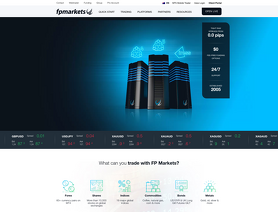
FP Markets
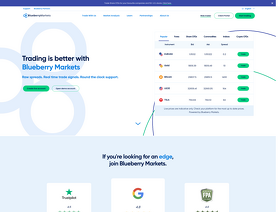
Blueberry Markets
Fusion Markets
How to check if a Canadian broker is legit?
Segmented regulation in Canada will make it harder to search for the right information about a broker. While most regulators have warning lists, check with The Canadian Foundation for the Advancement of Investor Rights (FAIR Canada) for advice too. FAIR Canada is independent of the government. Pages that you can find helpful are here (and the FPA's broker reviews). Also, check with the IIROC website.
How to file a dispute with a Canadian registered broker?
Any dispute is likely to go through the appointed Ombudsman with one of the Canadian regulators. IIROC made a nice video and guidelines on how to make a complaint here.
Are Canadian brokers reliable?
Canadian capital markets are well developed and therefore well regulated. Besides the complex structure, Canada sets a safe environment for investors. In terms of technology and trading conditions, Canada attracts international brokers that meet the highest demands globally. Companies that are registered with IIROC are also automatically members of the Canadian Investor Protection Fund (CIPF), a safety net in case of brokerage insolvency.
